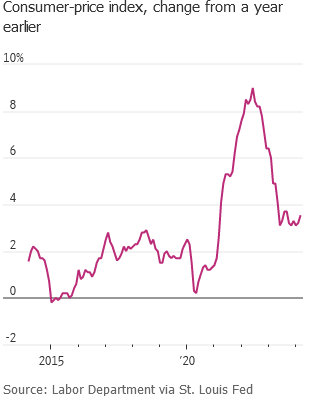Progressive-Democrat President Joe Biden’s economic advisor Jared Bernstein seemed confused when asked by a documentarist about Modern Monetary Theory.
A lot of times, at least to my ear with MMT, the language and the concepts can be kind of unnecessarily confusing but there is no question that the government prints money and then it uses that money to um, uh … I guess I’m just, I can’t really, I don’t get it, I don’t know what they’re talking about. … It’s like, the government clearly prints money, it does it all the time, and it clearly borrows, otherwise you wouldn’t be having this debt and deficit conversation. So I don’t think there’s anything confusing there.
Maybe I can help him.
The government prints money. So far, so good. Money floating around in the economy is demand for goods and services. It doesn’t matter, so far, whether the money is private money generated by our nation’s private economy—comprised of us citizens and our businesses producing goods and services, and others of us citizens and businesses buying them—or by the government creating money by printing dollars on the government’s presses; that money is demand.
Producers create the supply of goods and services. When the exchange of those goods and services for that money substantially leaves no goods and services unsold and no money left unspent, the economy is stable. If there is more money left than goods and services to be sold, that remaining money still is demand for those goods and services.
That remaining money creates inflation: sellers of goods and services raise prices to occupy the money available, and buyers offer more of their money in order to be the ones who actually buy what’s available. This is true all the way back in the production chain to raw materials in the ground, original training for services, and the supply of workers to do the actual work at every stage in the production sequence.
When government turns on its printing presses, executing on MMT, the amount of demand rapidly and increasingly rapidly outstrips the goods and services available for exchange, and so prices charged rapidly and increasingly rapidly rise to satisfy that demand.
That’s inflation.
Bernstein again:
Again, some of this stuff gets—some of the language and concepts are just confusing. The government definitely prints money, and it definitely lends that money by selling bonds. Is that what they do? They sell bonds, yeah, they sell bonds. Right? Since they sell bonds, and people buy the bonds, and lend them the money….
Except the government isn’t lending money when it sells its bonds, it’s borrowing money, from those bond buyers. Why does the government need to borrow? Because the prices of the goods and services the government needs to operate are rapidly getting more expensive, too. If government merely printed more money, rather than borrowing, inflation would rise even faster.
The cost of borrowing—interest rates—reduces demand by increasing the cost of money itself. Rising interest rates thus tend to reduce economic activity on both the goods and services side and the demand side by making ever more expensive the process of getting the money to do the buying at those ever-rising prices. That reduced economic activity reduces the rate of price increases, reduces inflation.
Left to a free market’s own devices, the demand and supply pressures generally lead to excursions in inflation both above and below a steady state where prices and production are in rough equilibrium and so are substantially stable. Those excursions, within broad limits, are self-correcting back to equilibrium.
This is what MMT, along with those who push it, get wrong. Printing money ad lib in deliberate disregard of inflation and deficits—and borrowing needs—takes the economy’s excursions outside those broad limits, and it does so to increasing extents. The self-correcting mechanisms are short-circuited by not allowing the balance between production and supply to be maintained: supply simply cannot keep up with the presses: it takes time to increase production at every stage in production from dirt in the ground/education and training in schools through to the final good and service.
MMT, then, in the economics technical term, is a crock.

